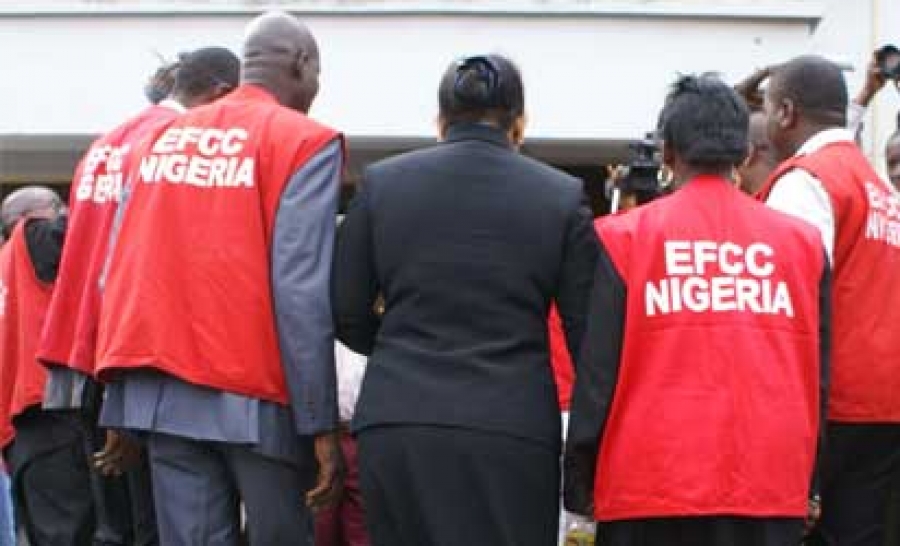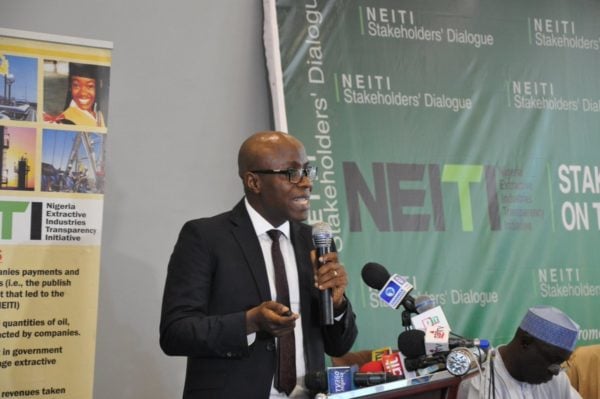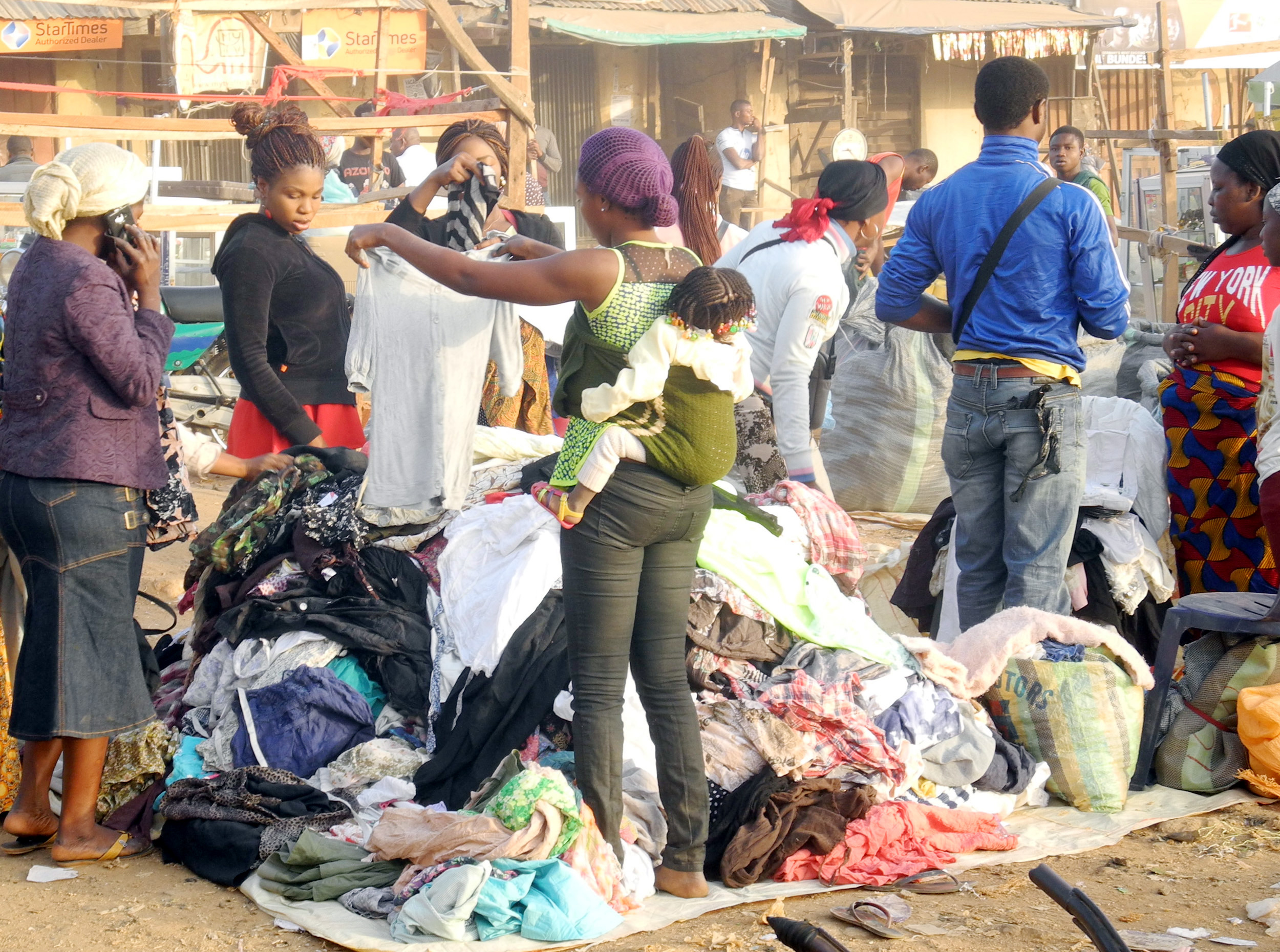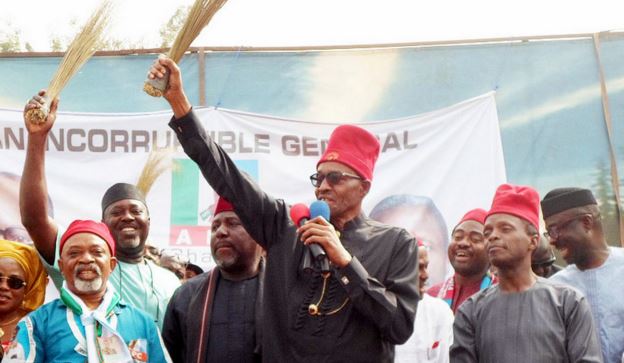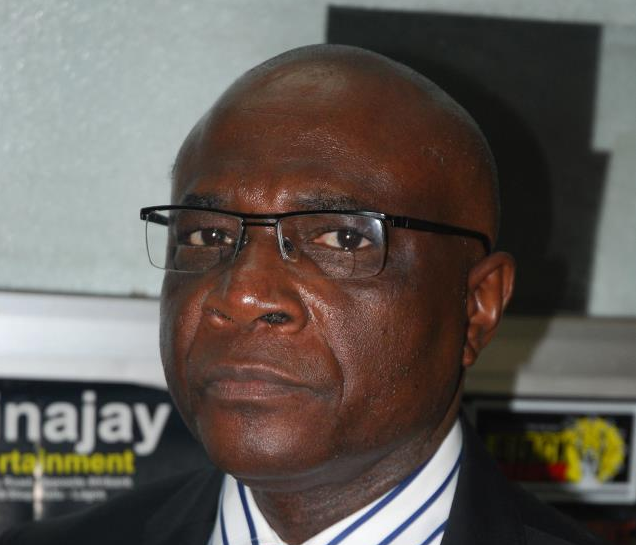The recent verbal fireworks between leaders of the Nigerian Bar Association and authorities at the Economic and Financial Crimes Commission should not be seen as a battle between the forces evil and good as our emotions would, most likely push us to believe.
Sometimes, we can get very emotive about our appreciation of issues in Nigeria. And public figures in the country understand the psyche of the average Nigerian so they bait us to fight their wars and we fall for it.
I agree that there could be benefits even for society in engaging in these proxy wars, but what saddens about our situation is that a majority of us allow opportunities for healthy public discourse go to waste, dissipate energies over inanities and let the substance of issues slip by.
So, the newly elected President of the NBA, Mr. Abubakar Mahmoud, while delivering his inaugural address at the 56th Annual General Conference of the association in Port Harcourt recently, suggested that the EFCC should be stripped of prosecutorial powers and left with the authority to merely investigate.
Advertisement
Although Mahmoud lauded the agency for the work it was doing, he opined that “going forward, the NBA must demand the reform of the institution itself. We need to define its mandate more narrowly and more clearly. In my view, its broad operations as an investigative and prosecutorial agency should be reviewed.”
Now, I do not understand what should upset any well-meaning Nigerian not to speak of an agency funded from the public till in this proposal. I would assume that what the NBA President said which only amounts to scrutinising a public institution, commending the institution and suggesting ways in which the body could be more effective was within the rights of a legal citizen of any country.
That this seemingly innocuous statement generated the volume of uproar it did tells of the level of disregard for the democratic right of expression of the citizen and the parlous state of healthy intellectual engagements in the country. That we elect character assassination and mob vilification of dissenting voices in our country instead of engaging in healthy mind-rubbing from, which a nation should ordinarily benefit is ample signal of how much we have sunken as a people.
Advertisement
It is even worse that a public institution like the EFCC would allow itself the temptation of being drawn into public rage from which it threw dirt at a professional association of the status of the NBA. That tells of the level of disrespect that government agencies have for citizens and pressure cum professional groups to which citizens belong.
Truly, the statement issued by the EFCC spokesperson, Wilson Uwujaren, claimed that the organisation was open to suggestions that would improve its operations since it is not omniscient, but it went ahead to impute motives for the NBA leader’s suggestions.
The statement got more intemperate when it described the association as “a Bar populated or directed by people perceived to be rogues and vultures” which “cannot play the role of priests in the temple of justice.” All of these because the head of the NBA, an association with which the EFCC should work in concert, offered a suggestion which does not have the force of law!
But this is clearly not out of the ultra vires tendencies of the EFCC to which Nigerians seem to be well-accustomed and even in consent. Almost at every point in its 13 years’ existence, Nigeria’s prime anti-corruption body has suffered from one level of public suspicion or the other. From the Nuhu Ribadu years to the Farida Waziri years and the Ibrahim Lamorde years and now to the Ibrahim Magu tenure, there have always been questions about whether the commission dances to tunes dished out by the executive or whether it is doing anything at all.
Advertisement
Most Nigerians still see the EFCC’s golden moment in the years of its pioneer Chairman, Nuhu Ribadu, nevertheless, many observers insist that Ribadu was a tool in the hands of the President Olusegun Obasanjo administration.
Waziri, a retired Assistant Inspector-General of Police, who took over from Ribadu was summarily fired by the Goodluck Jonathan administration. She still carries the baggage of malleability and exposure to the prescriptions of those who facilitated her appointment by the Umaru Yar’Adua administration.
Lamorde, the honcho immediately after Waziri, was accused of dithering, a disposition linked with the perceived permissiveness of sleaze of the immediate past executive. And even the tenure of the current chairman has not been spared of allegations of bias and injudicious deployment of power.
Yet, this organisation will not submit itself to public scrutiny without drawing daggers at those who dare. And it is doubtful that the EFCC even evaluates its own performance.
Advertisement
If questions have been raised about the performance of every single head of the organisation in its over one decade of existence, shouldn’t the body ponder over improving its performance and registering measurable impact on the lives of the people? This is especially so when only one of the three succeeding chairmen after Ribadu could be said to be an outsider to the commission. Lamorde and Magu having been Director of Operation and Head of Economic Governance Unit respectively before their elevation.
We should ask ourselves honest questions about the gains that we have made over corruption in the 13 years that the EFCC has existed and how much of that victory is attributable to the activities of the commission.
Advertisement
We should go beyond the court cases and media drama that we have seen over the years to interrogate the Returns on Investment of our trust on the EFCC.
Have we just been able to get people to stop talking about stealing and flaunting the proceeds of their theft or have we really succeeded in convincing Nigerians that corruption is a cankerworm that does no one good?
Advertisement
What do we need to do to get every Nigerian to believe in the work of the EFCC without any jot of doubt in the neutrality of the commission and others like it? What do we need to do to purge law enforcement agencies and even the office of the Attorney General of the country of actual or imagined executive interferences?
How and when will Nigeria attain a level of rectitude in which public agencies can call government officials, no matter how highly placed, to question without fear or favour? Aren’t these the type of questions the citizenry should be asking themselves about the EFCC?
Advertisement
These interrogations should not just be about the EFCC but all institutions that serve at the pleasure of the Nigerian people. The arrogance of office that we have in this country is itself corruptive and Nigeria is not going to change until we, the people, insist that the bodies set up by the constitution to serve our interests must deliver just what they were set up to do.
For all I care, the NBA president might have taken that position in the actualisation of an ulterior motive. That would be real shame but it does not matter, especially as we have no evidence. However, he is a Nigerian with rights to contribute to any discussion on the EFCC, so does the NBA, which he leads.
But on the contrary, the EFCC has no right to talk down on any Nigerian; the EFCC is no court and stands in no place to condemn anyone of roguery or any crime for that matter. If the commission finds any individual wanting, the law, as it stands now, allows it to investigate and convince the courts of the person’s crimes. This random vituperation is beyond the EFCC’s brief as they are beneath its weight as an organisation deserving of citizen’s trust and respect.
As a final point, the EFCC is not above reform, it indeed can only attain optimal performance through constant reforms. This body is a mere creation of man so it does not have the blessing of infallibility; let this chairman or any public servant for that matter not delude himself otherwise.
Follow me on twitter:@niranadedokun
Views expressed by contributors are strictly personal and not of TheCable.
Add a comment

